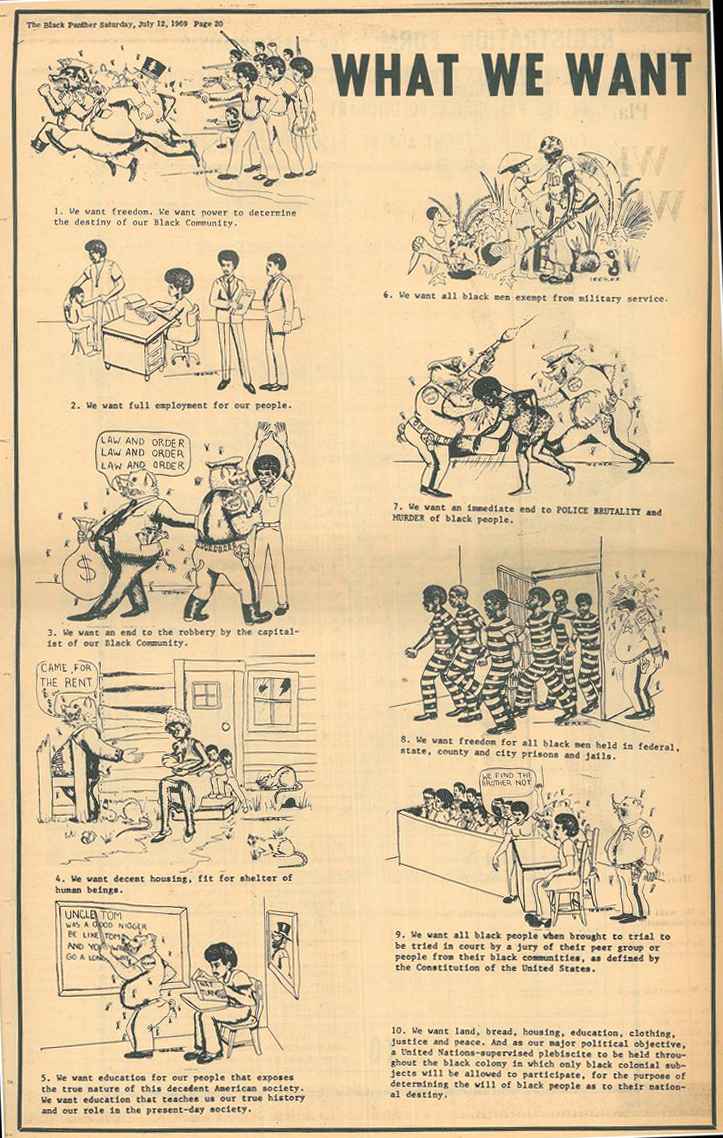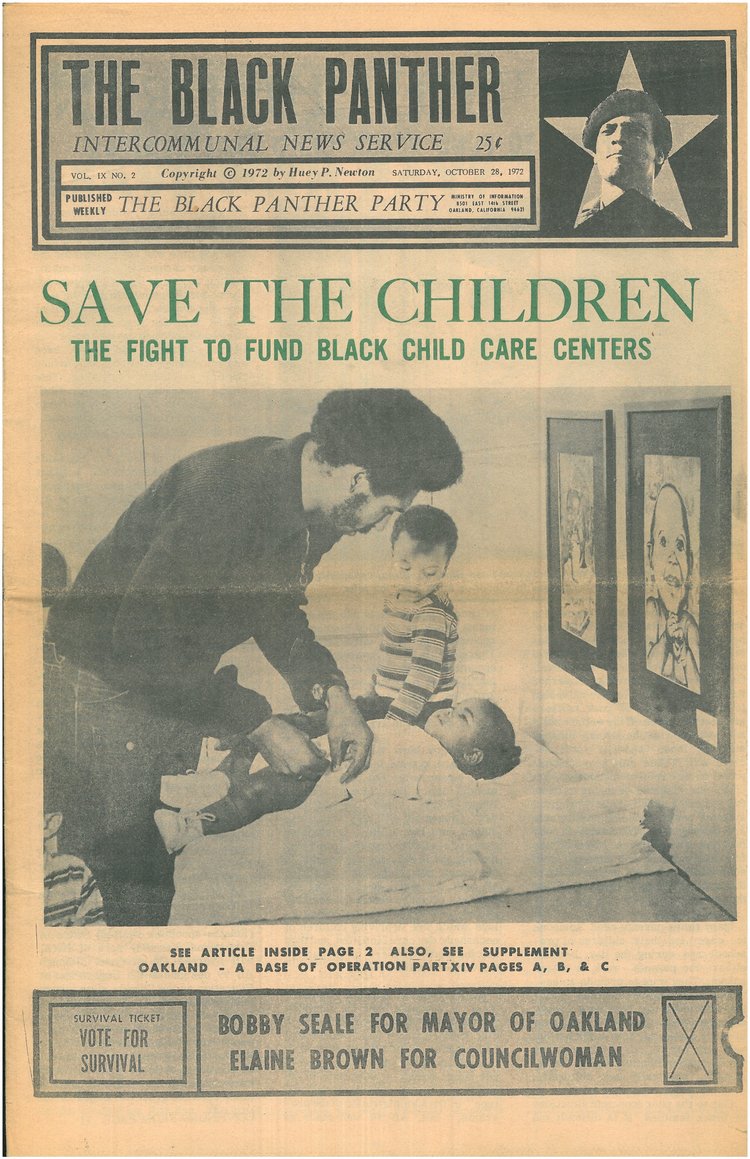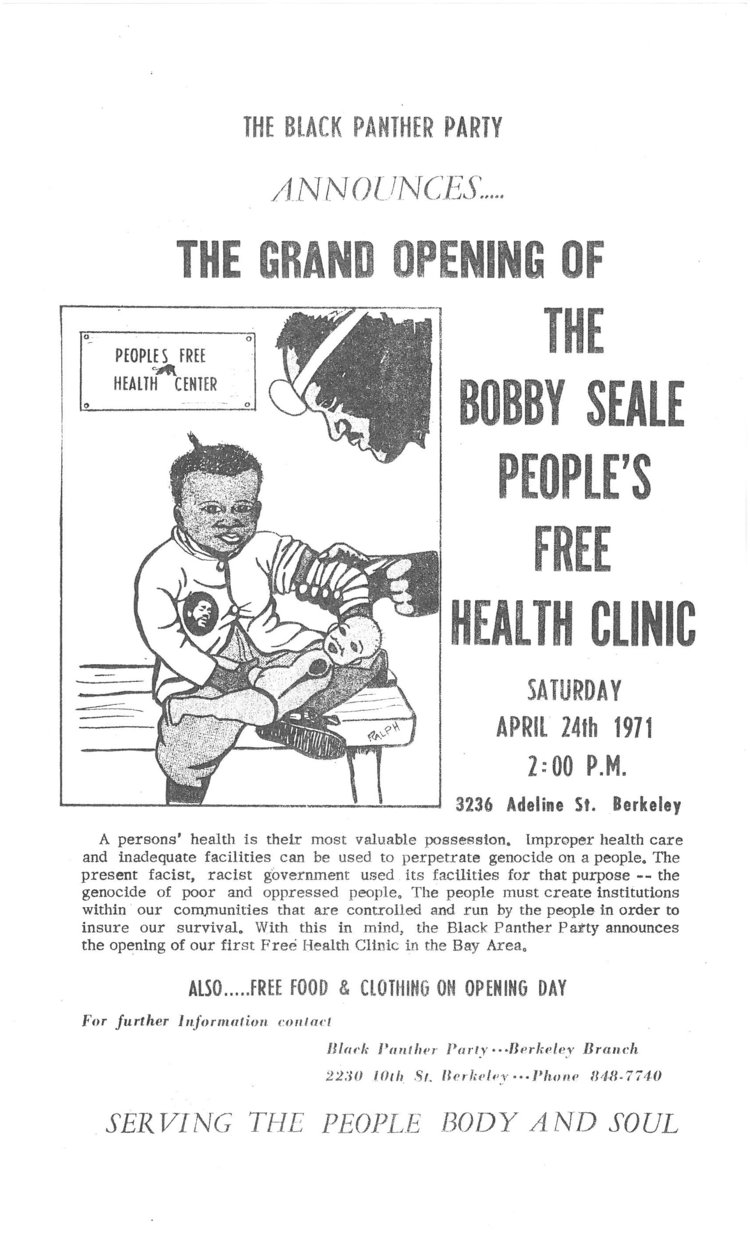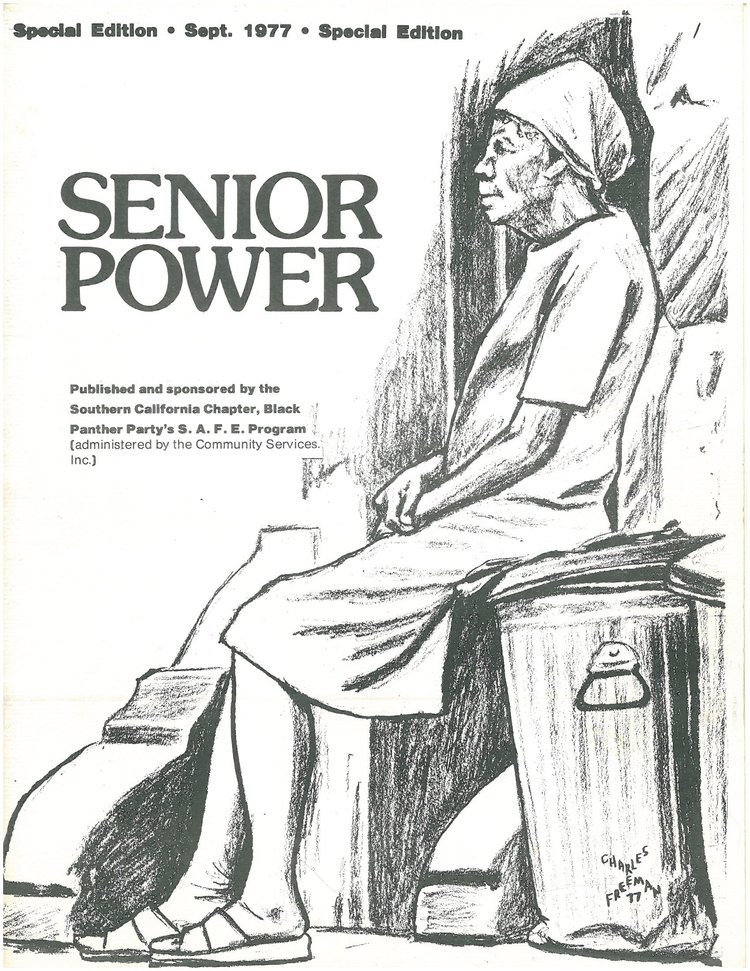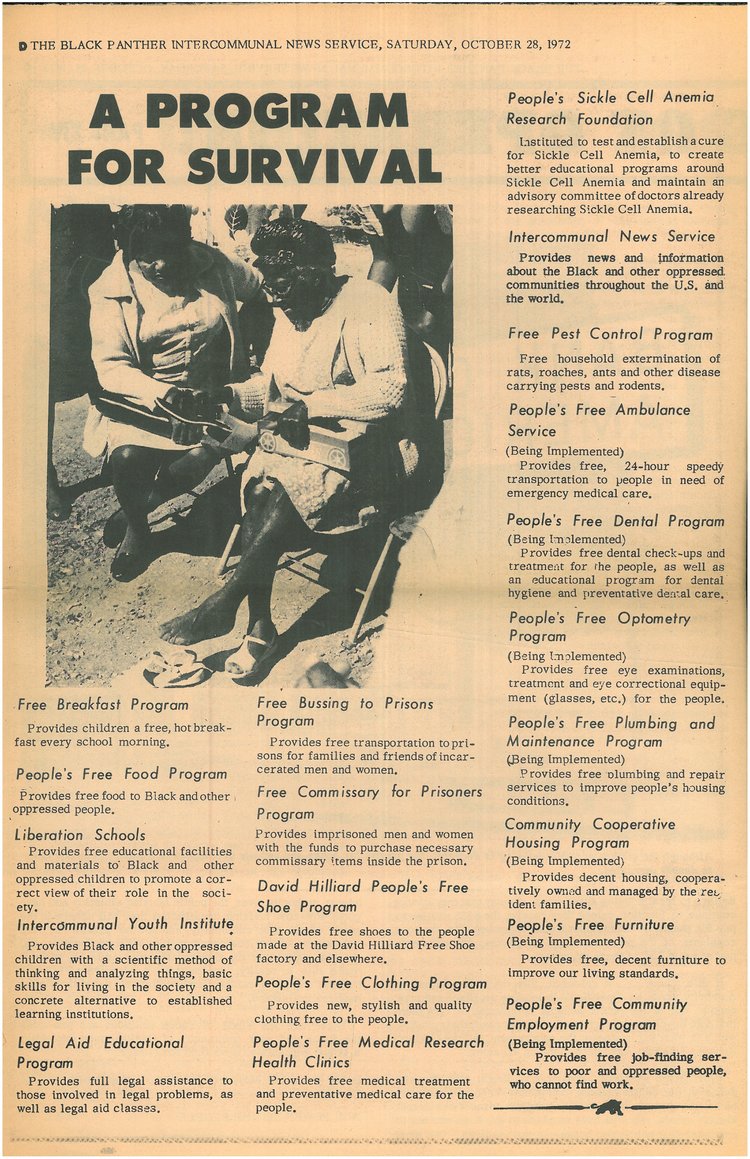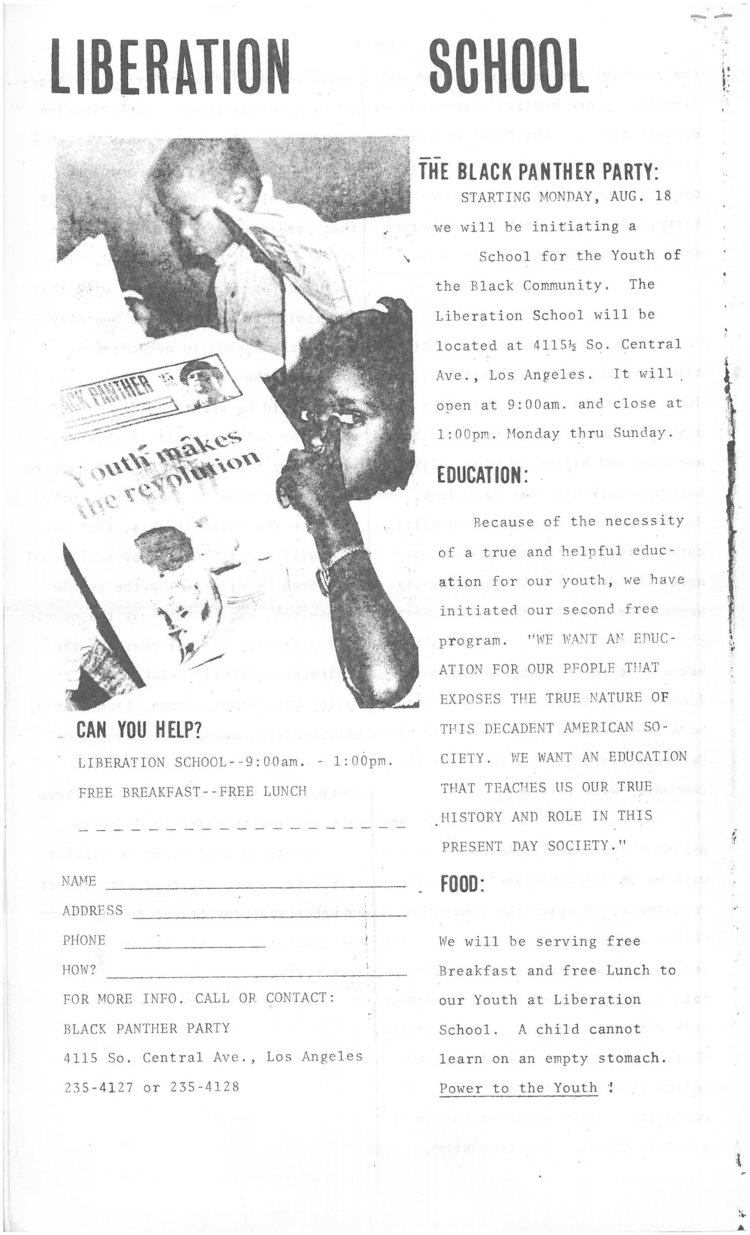The Courage to Invent the Future*
by Rachel Herzing
I don’t watch superhero movies. Or read comic books or graphic novels. These are not positions, but preferences.
I do, however, spend lots of time thinking about remaking the world. I think about ways to increase Black people’s power to manage our own lives and affairs under the death-dealing pressures of racial capitalism. I think about ways to eliminate the violence of imprisonment, policing, sentencing, and surveillance. I think about how gains in any of those areas might improve the lives of all the most marginalized among us. I also spend lots of time thinking about how Black people generate ideas of what it means to be Black to sell to other Black people (and by extension many others). So while I have no Black nerd cred when it comes to dissecting the minutiae of the character, graphic representations, or film adaptation of Black Panther, Ryan Coogler’s new film fascinates me.
Black Panther has captured the imaginations of millions of people across the planet. The overwhelming enthusiasm and excitement people are expressing about the film makes me wonder how we can engage that enthusiasm and excitement to advance campaigns and projects to transform the material conditions of Black people in our families, neighborhoods, organizations, and larger communities. Seeing Wakanda depicted as an African civilization that developed free from the constraints of colonialism opens up new terrains on which to imagine alternative Black histories, and by extension Black futures. What if the genocidal domination and occupation that altered the course of African development across the continent had not occurred? What if those peoples’ natural resources had not been wrenched from their hands? What if art, culture, and technology had developed unabated rather than being silenced, suppressed, and destroyed? What if all of that was fueled by a magical mineral that could seemingly do anything? Engaging deeply with what ifs is not simply the purview of science fiction and superheroes, but also that of movements for radical social change.
What if everyone were guaranteed a universal basic income? What if no one lacked for safe housing? What if people could move freely and without repercussion across borders; or what if there were no borders? What if war were a thing of the past?
While it’s probably ill-advised to rely too heavily on fictional accounts for organizing lessons, I have been thinking a lot about ways that the expanded horizons offered by Black Panther could be mobilized to expand the political horizons of people who find radical social change too fantastical. In that spirit, I offer a handful of potential lessons from Black Panther for our movements.
Internationalism Is Essential
No group can build a more self-determined future alone. Oppressed groups committed to shifting power relations are stronger for seeing their fates as bound together and working collaboratively to transform conditions not just for themselves, but for those to whom their fate is tied. Black Panther’s Wakanda has maintained a centuries-long practice of isolationism and has intentionally hidden behind a false front to maintain its magical mineral wealth even while witnessing the impacts of colonialism decimating its neighbors. The character of Killmonger is the film’s strongest voice against isolationism. He is also portrayed as a diabolical political extremist. While Wakanda chooses to become more open to international relations, notably mediated by a white CIA agent and via the United Nations, for people who care about building a more liberated future for Black people, it could be wise to reflect on historical lessons for building people’s power rooted in internationalism.
The Third World, as Vijay Prashad reminds us, was conceived as a project, not a place. Even while fighting for national liberation, the “darker nations” worked to create agreements that aimed at addressing the conditions imperiling them both individually and collectively. Historical projects from the League against Imperialism and the Non-Aligned Movement to the Bandung and Tricontinental Conferences hoped to decrease the threats of colonization and war, to increase economic equity, and to increase democracy such that nations that had been marginalized could exercise more power in international spheres. These projects, often fueled by the energy of strong people’s movements and anti-colonial campaigns, struggled under the weight of imperial powers that understood the threats posed by these joint efforts. However, they also built substantial networks that offered ideological and strategic as well as financial and other material support, from arms to medicine to human beings, used to gain and maintain independence. A powerful Black future requires a commitment to a durable solidarity that spans national borders and engages rather than rejects diasporic populations.
Women in the Lead
The presence of powerful women is essential and having women and gender nonconforming people who kick ass around us makes many more things possible. But those women must do more than caretake, protect, defend, advise, or even make technological advances. They must lead. We won’t advance liberation struggles without women holding genuine power and crafting strategy. Revolutionary movements have frequently failed to adequately integrate women and gender nonconforming people into their leadership. Further, the lion’s share of political and social movements pushing for social change around the world are made possible by women’s labor even when they are not afforded the respect of being seen as those movements’ leaders. If we can dream anything we want, why not correct this error?
Our current period offers examples of young Black women and trans people demanding leadership in the fights for their futures. Black Youth Project 100, Asata’s Daughters, SpiritHouse, TGI Justice Project, and similar groups are advancing programs for Black liberation in the U.S. that are also explicitly rooted in the intentional leadership of Black women and gender nonconforming people. These organizations draw from the long history of Black women’s leadership and apply lessons to contemporary conditions.
Black Power Is Beautiful
I was as dazzled as any Black Panther viewer by the parade of Black people in the film. People representing a variety of cultures, embodying a variety of hues, and fulfilling a variety of roles. A world of Black people. We’re often absent from mainstream representations of life or relegated to narrow depictions that deny us connection to our full, complicated humanity, and many of us are hungry to see ourselves reflected in the culture we consume. While Black surely is beautiful, having more of us in the picture, even in our grandeur, isn’t enough to transform our conditions. To live meaningful, self-determined lives requires shifting power. Those shifts will not come from embracing capitalism, hoarding natural resources, and getting ours. They will come from confronting our oppressors, from undermining their power and legitimacy, from sabotaging their tools, and from building our own power to fight back. We would be wise to not be distracted by moves to more inclusion or better representations that don’t ultimately increase our self-determination as well.
STEM Won’t Save Us
As Black Panther closes, we see the Wakandans magnanimously planning a technology education center in West Oakland at the site of the villainized character Killmonger’s childhood home. Rather than support liberation struggles waged by Africans and Black people in diaspora by sharing a magical mineral that can do all things, the Wakandans offer science, technology, engineering, and math (STEM) education. This conclusion suggests that Black people are pressed down, not by systematic deprivation of the resources necessary for our liberation, but by our own ignorance. The long history of Black people being denied access to education or being burdened with substandard white supremacist education is well documented, and high-quality STEM education is certainly a benefit. Advances in science and technology devoid of a political program aimed at self-determination, however, reek of the same bootstraps mentality that has characterized discussions of Black people’s oppression. By the way, Disney, which has already made upwards of $800 million in ticket sales on Black Panther since it opened, is making a one-time donation of $1 million to the Boys & Girls Clubs of America to advance its existing STEM programming and to build new STEM centers in 12 cities including Oakland. This donation amounts to about $80,000 per site, with no ongoing commitment from Disney to sustain the centers.
While we’re all still feeling excited about what Black people are capable of and energized about a future for Black people liberated from the chains of colonialism, let us remained focused on building programs and engaging people in fights that not only make us smarter but help us fight better.
Hooray for the Anti-Hero
Is it wrong that I want to see the movie where Killmonger wins? Black Panther’s villainized Killmonger is Oakland born and bred. That director Ryan Coogler chooses his home town as the location of diasporic Blackness doesn’t strike me as a coincidence. Oakland remains a Black city in many ways, despite unrelenting efforts by capital to change its stripes. Oakland is also synonymous with Black liberation and an enduring legacy of Black radicalism including organizing Pullman porters, the Black Panther Party for Self Defense, or the contemporary fights against the violence of policing. We learn that Killmonger’s father, the would-be crown prince of Wakanda, has been “radicalized” by the hardships he saw while acting as a spy based in Oakland. He is identified as a traitor and killed to repress that radicalism, but his kid is left behind. Interestingly, Killmonger’s vengeance is less based on blood feud than bitterness that Wakanda stood by while Black people across the world faced genocidal violence, and he ultimately chooses death over a subjugated life. From his fatigues to his swagger, Killmonger fulfills the Hollywood stereotyped revolutionary mold. His radicalism, born of suffering and deprivation, is hungry, aggressive, and single-minded. Similarly stereotyped is the impression that his radical politics also signal a desire to turn the tables and not only kill his enemies, but dominate everyone else. It’s a missed opportunity that flattens complex politics to a pair of fatigues or a fist in the air, in service of a villainous foil to advance plot points.
Perhaps it’s more useful to see Killmonger as an anti-hero than a villain. The best revolutionary impulses are frequently fraught with contradictions and missteps. His commitment to liberating vibranium ore and thereby liberating Black people across the world influences a change in Wakanda’s isolationism. His disruption troubles the luxury and comfort the Wakandans are so afraid of losing. He is an agent of change and transformation who exposes the Wakandan contradictions not avoided even with strict isolationism. Maybe Black Panther is a film in which Killmonger wins after all. How can we navigate complexity and contradiction in our own leaders and movements without papering over mistakes and flaws?
Embrace Expansive Horizons
If moviegoers will embrace the fantastical world of Wakanda and its alternate reality, if they enthusiastically cheer for this place and its people and proclaim #WakandaForever, can we get them to accept an expanded version of possible futures in our own place and time? When we think about the world we want, we often seek a more even distribution of power and resources. We seek means of addressing harm that don’t rely on placing human beings in cages or completely diminishing their humanity. We seek stable, safe housing. We seek meaningful, non-exploitative work. We seek the freedom to move freely and without fear of repercussion. We seek physical, mental, and emotional health and accessible resources to maintain that health. We seek a relationship with the natural world that maintains balance and rejects harmful extractive and polluting practices that jeopardize that balance. These are not utopian visions, or science fiction fantasies. They are dreams of a near future toward which millions of people across the world are working today.
These visions require us to think more creatively and expansively about how we fight, however. Even as some of us embrace the powerful African world offered via Wakanda, can we not imagine better for Black people in our own world? Can we not embrace a vision of building power that understands our fates as intimately linked and that sees genuine, material solidarity between oppressed peoples as essential to overturning that oppression? Can we not imagine social and political structures that see power sharing and collaboration as equally as impressive as monarchies and structures headed by strongmen? Can we not reach beyond economies rooted in natural resource extraction to be hoarded? Why must even our wildest fantasies about what Black people could create be tethered by the very structures and forces that have been at the heart of our domination, repression, and that have fueled our premature death? Black Panther has ignited the imaginations of millions of Black people eager to see Black people represented more powerfully. Will organizers for social change be able to help extend that eagerness to making changes in our own world today?
This piece was helped by conversation with Isaac Ontiveros and Paula Austin. My gratitude to both of them for helping to shape my thinking.
*The title for this piece comes from a quotation from Thomas Sankara: “You cannot carry out fundamental change without a certain amount of madness. In this case, it comes from nonconformity, the courage to turn your back on the old formulas, the courage to invent the future. It took the madmen of yesterday for us to be able to act with extreme clarity today. I want to be one of those madmen. We must dare to invent the future.”
ARTICLES
The Courage to Invent the Future
Killmonger's Captive Maternal Is MIA
Eulogy for Wakanda/The King Is Dead
What Don't Make Dollars Don't Make Common Sense
Dream Work: Fantasy, Desire and the Creation of a Just World
A Crisis in Hollywood: Black Panther to the Rescue?



